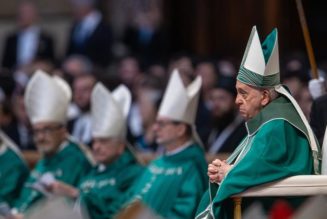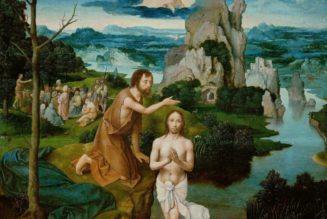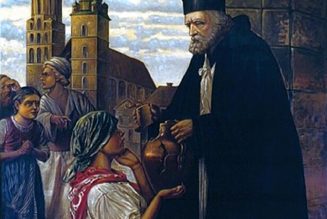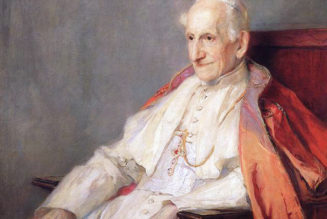
In the words of British archaeologist William M. Ramsay:
Luke is a historian of the first rank; not merely are his statements of fact trustworthy; he is possessed of the true historic sense. . . . In short, this author should be placed along with the very greatest of historians” (The Bearing of Recent Discovery on the Trustworthiness of the New Testament, ch. 18).
Despite this, numerous modern skeptics—many of whom are just repeating what other skeptics have said—treat Luke as if he’s hopelessly historically confused, particularly with regard to his birth narrative of Jesus, which says:
In those days a decree went out from Caesar Augustus that all the world should be enrolled. This was the first enrollment, when Quirinius was governor of Syria. And all went to be enrolled, each to his own city. [So] Joseph also went up from Galilee, from the city of Nazareth, to Judea, to the city of David, which is called Bethlehem, because he was of the house and lineage of David (Luke 2:1-4).
One of the skeptics’ criticisms of this passage is the statement that Joseph went from Nazareth to Bethlehem because he was of the lineage of David.
Here is where mockery commonly begins.
“This is ridiculous!” the skeptic will say. “David lived a thousand years before the time of Jesus! The Roman Empire would never conduct a census this way! It would never require people to go where one of their ancestors lived a thousand years ago! Nobody would even know that! I mean, do you know the city where your ancestors lived a thousand years ago?”
Despite the vigor with which some skeptics pound their pulpits on this subject, their criticism is simply misdirected. They are misreading what Luke says.
Prior to this point, Joseph has been mentioned only once in the text, when the angel Gabriel came to announce the birth of Jesus:
In the sixth month the angel Gabriel was sent from God to a city of Galilee named Nazareth, to a virgin betrothed to a man whose name was Joseph, of the house of David; and the virgin’s name was Mary (Luke 1:26-27).
This passage indicates three things about Joseph: (1) he was betrothed to Mary, (2) he was of the house of David, and (3) he apparently has some kind of connection with Nazareth, since that’s where Mary was when the angel appeared. That’s all the reader knows at this point.
So let’s read the second passage discussing Joseph (2:1-4) and see what one of Luke’s normal readers would make of it.
Luke tells us that “all went to be enrolled.” The first thing to note is that Luke doesn’t tell us what kind of enrollment this was. He expects the reader to already know that from the events of the day. Many have assumed that this was a tax census, but we don’t know that. It may have been something else. In fact, there is a good chance that it was a loyalty enrollment that we have other records of, in which subjects of the Roman Empire swore their loyalty to Augustus Caesar.
However that may be, people needed to be somewhere that they could participate in the enrollment, so they went “each to his own city.” Obviously, this only applied to people who were away from their city during the period of the enrollment. If you were already in your own city, you didn’t need to go anywhere.
Did Romans require people to go to their own cities for enrollments if they were away from them? Yes, they did. In A.D. 104, the Roman governor of Egypt, Gaius Vibius Maximus, issued a decree that stated:
Since registration by household is imminent, it is necessary to notify all who for any reason are absent from their districts to return to their own homes that they may carry out the ordinary business of registration and continue faithfully the farming expected of them (lines 20–27; in Adolf Deissmann, Light from the Ancient East, 268).
So—if you were away from your home city—you needed to go back there for events like this.
Luke then says, “So Joseph also went up.” From this, we can infer that—at the time of the registration—Joseph was away from his “own city.” Therefore, he returned there.
Where was he at the time? Luke says he went up “from Galilee, from the city of Nazareth.” Okay, so he was in Nazareth in Galilee. That’s not surprising in light of the fact he was betrothed to Mary, who was in Nazareth when the angel appeared.
So where was Joseph’s “own city”? Luke tells us that he went “to Judea, to the city of David, which is called Bethlehem.” Thus, Bethlehem was Joseph’s “own city.”
We now come to the statement that really sets skeptics off: “because he was of the house and lineage of David.”
Luke includes this line to help explain why Bethlehem was Joseph’s “own city,” but skeptics draw a completely unwarranted inference from this and assume that everybody in the Roman Empire was required to return to where one of their ancestors from a thousand years ago lived.
Does Luke say that? Of course not! It would not be remotely practical to conduct a census—or any other kind of enrollment—in that way.
And that’s not only obvious to us; it was just as obvious to Luke and to Luke’s readers. Everybody knew that there was no such requirement for Roman enrollments, and neither Luke nor his readers would have ever dreamed that someone would make such a ridiculous inference.
If Luke had the ability to speak with a modern, mocking skeptic, one can easily imagine him wanting to say something like, “Don’t be an idiot. That’s obviously not what I meant!”
So what did he mean? What would an ordinary, first century reader have inferred from what Luke wrote?
A logical inference would be that Bethlehem was Joseph’s “own city” because he had a contemporary connection with Bethlehem, because “he was of the house and lineage of David.” In other words, it was his place of residence because he was a Davidite.
And that would not be surprising. Inheritance was very important in ancient Israel. The whole land was an inheritance from God (Exod. 32:13), and each tribe inherited a particular portion of land (Num. 34:18). This area had to be preserved, and parcels of land could not be transferred from one tribe to another (Num. 36:1-9). Parcels could only be temporarily “sold” (really, leased) to another person, and the owner got it back in the Jubilee year (Lev. 25:13-16). This included houses in unwalled cities like Bethlehem (Lev. 25:31).
All this created a legal framework that that tended to stabilize the possession of properties within particular families. This had the effect of anchoring the family of David in Bethlehem, and so there were Davidites there. We’re thus meant to understand that, because Joseph was of the family of David, he had a residence there—a home. In fact, it was his primary residence.
How, then, are we to explain Luke’s statement just a few verses later?
And when they had performed everything according to the law of the Lord, they returned into Galilee, to their own city, Nazareth (Luke 2:39).
This is at the end of Luke’s birth narrative, and so it is meant to be read in context of what has preceded it. The logical inference that Luke would expect his readers to make is that Nazareth was also Joseph and Mary’s “own city.”
In other words, they had two residences: Joseph’s residence in Bethlehem and their joint residence in Nazareth.
Why would they have two residences? Were they rich? Far from it. Luke relates that when they made the post-childbirth sacrifice for Mary, they offered “a pair of turtledoves, or two young pigeons” (Luke 2:24). That was the offering prescribed for a poor woman who could not afford a sheep (Lev. 12:8).
We thus should not imagine that Joseph and Mary were rich and had two opulent homes. Instead, we should infer that their dual residency was a situation based on economic necessity.
Even today, many people have to live away from their family homes in order to find work, and they don’t just stay out on the streets. They find some kind of accommodation where the work is, but they still consider their family home their primary residence, and they travel back to it periodically. Usually, there are other family members there on a permanent basis. This is a pattern that happens in countries all over the world.
To cite just one example, if a couple is native to Sinaloa, Mexico but comes to Arizona to find work, they’ll have some kind of residence in Arizona and their primary, family residence in Sinaloa. The same is true of those who migrate for work elsewhere in the Americas, in Africa, Asia, the Philippines, and in the Middle East.
I’ve written about this before, but the logical inference that Luke would expect his readers to draw from this data is that Joseph had a residence in Bethlehem, which was his primary, legal residence (in keeping with Jewish property inheritance practices), so that’s where he went for the enrollment. However, for economic reasons he spent most of his time in Nazareth and also maintained a no-doubt humble residence there.
No mockery is warranted. This all makes perfect sense if you read what Luke says and interpret it sensibly.
BONUS! Click here for information about the “no room in the inn” verse?








